How the Swiss-based WHO BioHub is preparing for future pandemics
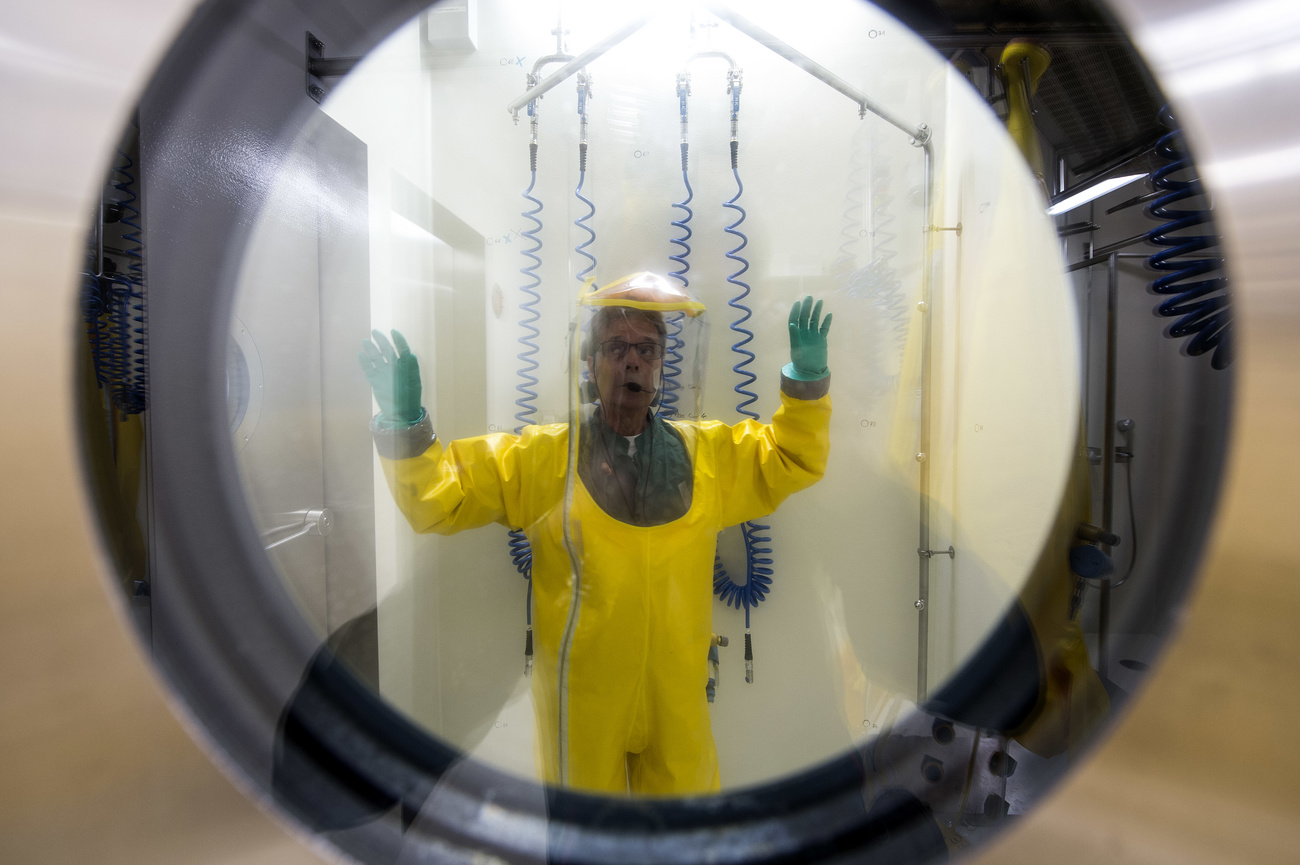
The creation of a global repository in Switzerland to store, analyse and quickly share viruses and pathogens among laboratories around the world will better prepare us for the next pandemic, says a biologist working at the future BioHub site.
Last month, the Swiss government and the World Health Organization (WHO) signed an agreement to launch the first WHO BioHub Facility. Switzerland will make available to the WHO the Spiez Biocontainment LaboratoryExternal link, based in the centre of the small Alpine country, to serve as a global repository for viruses and other pathogens with epidemic or pandemic potential – such as SARS-CoV-2 that causes Covid-19. There, they will be safely stored, analysed, and shared with other countries.
Isabel Hunger-Glaser is head of the biology division at the Spiez Laboratory in canton Bern. We spoke to her to learn more about the BioHub and the work that will be done there.
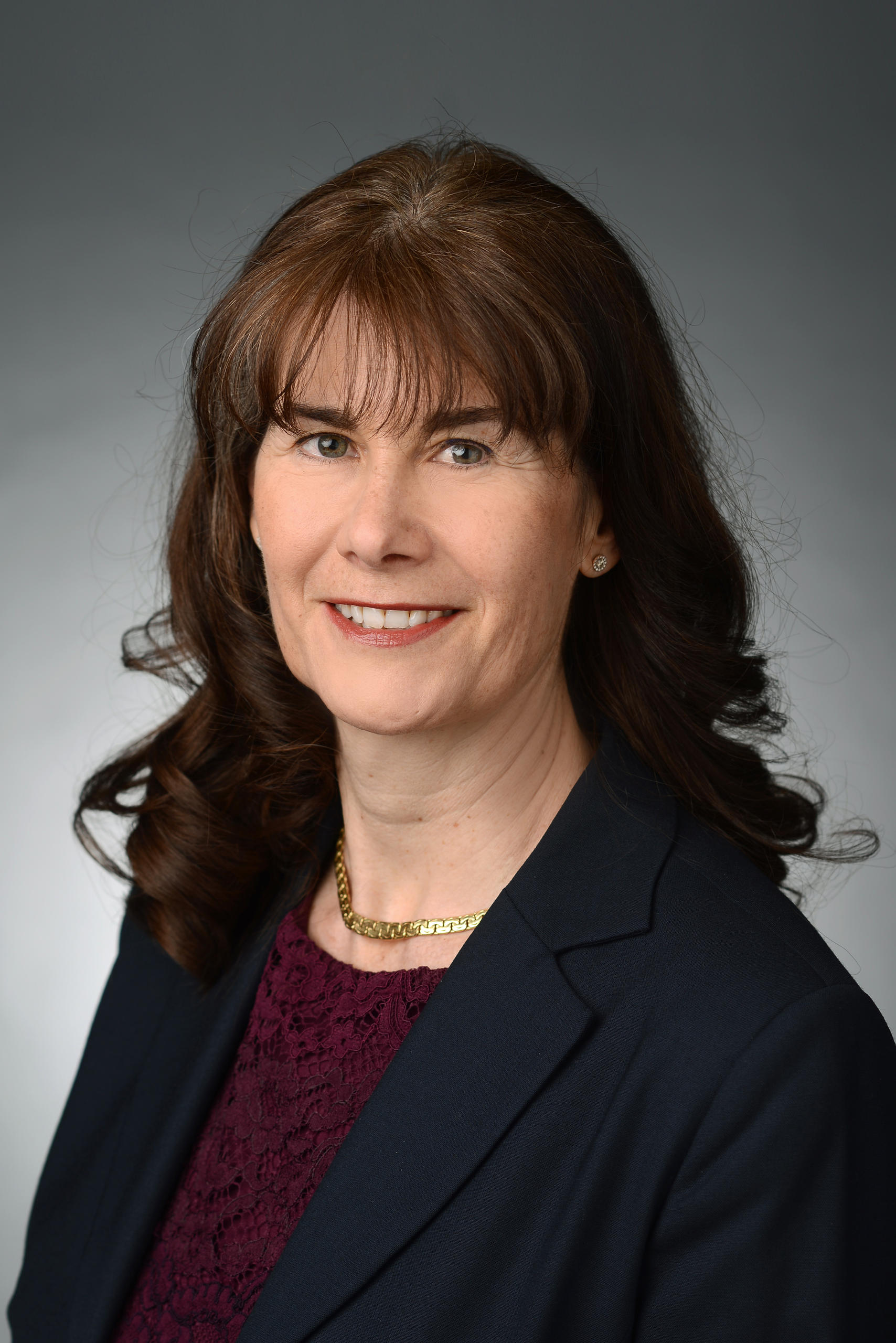
SWI swissinfo.ch: Why was it necessary to create such a BioHub facility?
Isabel Hunger-Glaser: The prompt analysis of new pathogens is an essential step towards containing disease early on during future epidemics or pandemics and preventing further spread. With this kind of approach, a disease would likely not spread as suddenly as it did with SARS-CoV-2.
The idea for the BioHub system came from Dr Tedros Adhanom Ghebreyesus, Director-General of the WHO. He called for a new era of international cooperation, stressing the need to be better prepared for the next pandemic.
The sharing of pathogens between countries currently takes place based on bilateral agreements, which is a time-consuming process especially in administrative terms. With the BioHub system, the WHO intends to establish a much faster sharing of pathogens to ensure a rapid response for the intervention and development of diagnostics or treatments. WHO also believes that the current situation is not fair, [where certain countries have more access to information about pathogens than others]. One of the principles of the BioHub system should be equity and fairness.
SWI: How will the BioHub work, and how much say will Switzerland have in what is stored, shared, and analysed at the Spiez lab?
I.H-G.: At Spiez we’ll grow the pathogens and do analysis, such as sequencing. This is important for the purpose of quality control. The WHO is responsible for sharing [findings] with other countries. They will get in contact with the laboratories that are interested in receiving particular variants. The WHO will share pathogens only with qualified entities that meet the relevant regulations and standards. The WHO will then inform us to prepare a particular variant to be sent to this qualified entity.
We are in the process of setting up an advisory committee with people from the Geneva University Hospitals (HUG), the Swiss Institute of Virology and Immunology (IVI) and Spiez Laboratory that would discuss whether a particular new variant is relevant and should be stored at the BioHub facility. Obviously, we don’t need to accept variants that we already have.
SWI: Why was Spiez chosen over other labs as the main hub?
I.H-G.: The WHO started the initial phase of the BioHub system with one laboratory. There are several reasons why the Spiez Laboratory has been chosen, such as its geographical location close to Geneva, its high standards, its good reputation, and the fact that it offers a containment infrastructure of the highest biosafety level. Spiez Laboratory is the only laboratory in Switzerland with the highest safety level, where highly dangerous pathogens (risk group four) can be cultivated. For their characterisation and sharing, it is important to grow the pathogens and then analysis can be performed.
We already have a repository for Switzerland at Spiez with about 40 different pathogens, such as the causative agents of Ebola and other haemorrhagic fevers. Several variants of SARS-CoV-2 have already been cultivated, analysed, and stored at our facility.
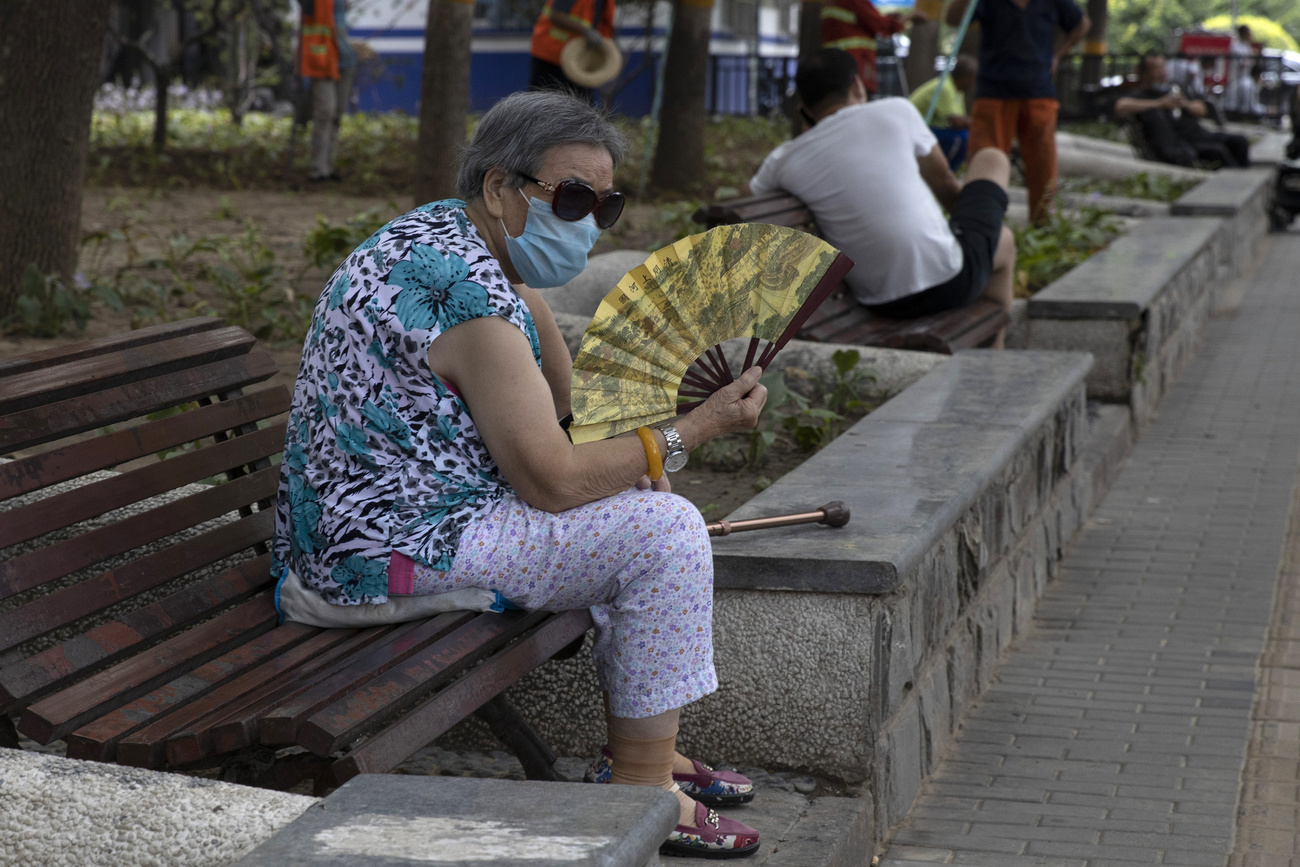
More
New WHO scheme could speed response to global health crises
SWI: The plan is to launch a pilot phase of the hub based on SARS-CoV-2 and its variants before the project is expanded to other pathogens. How do you see the work developing over the next 12 months?
I.H-G.: Work should start in July. The idea of the pilot phase is to improve the processes and gain some experience.
It’s very unpredictable how things will develop. We know that a few countries would like to provide their variants to the WHO. I have the feeling that we could get several strains from Africa or South America. The situation in Africa, for example, suggests a growing number of new variants with mutations of potential concern.
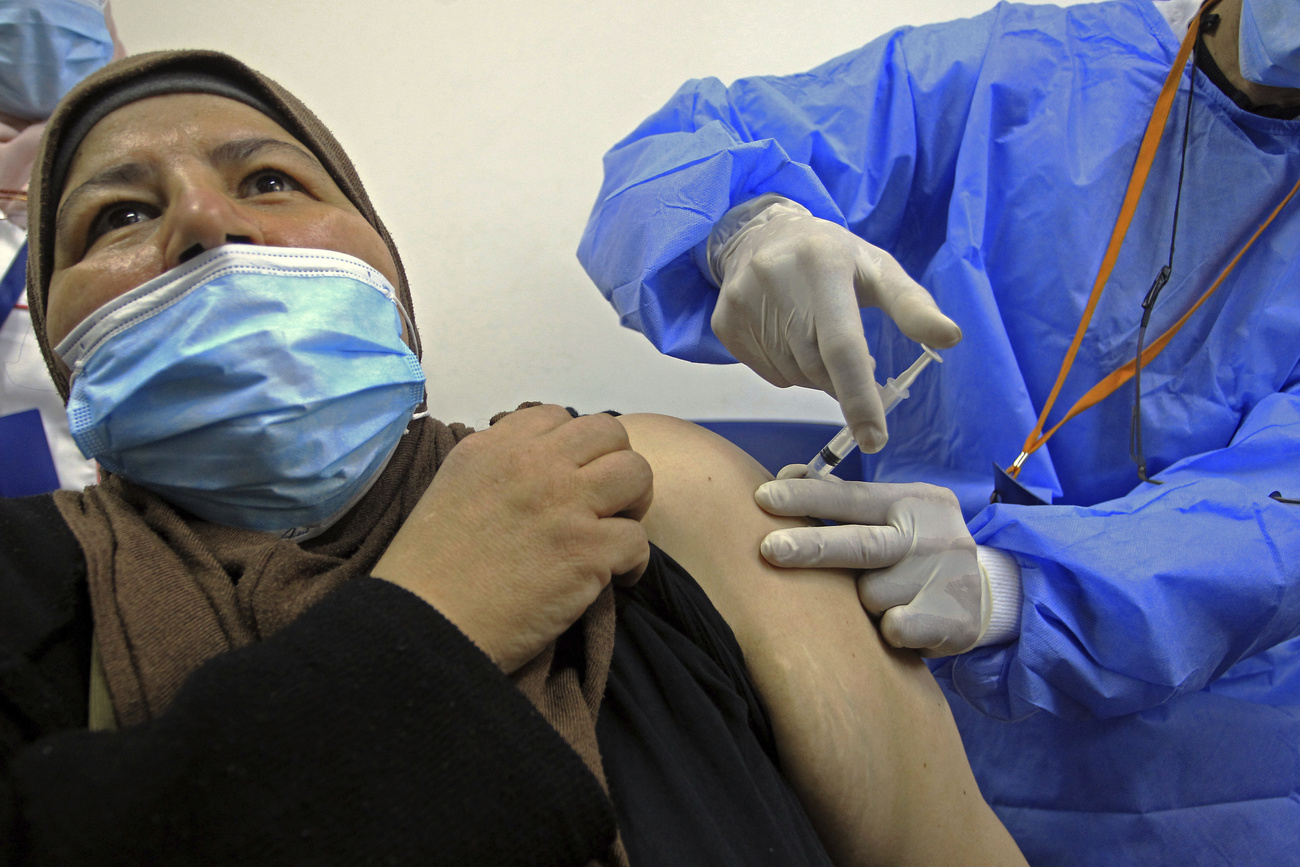
More
In the vaccine race, can COVAX help poorer countries catch up?
SWI: The BioHub system is voluntary. Given member states’ reluctance to cooperate during the pandemic on issues like vaccines, can we expect them to actively share pathogens?
I.H-G.: The experience with the current pandemic has demonstrated the importance of reacting fast, sharing experience, and working together. Had everything gone faster, maybe it would have been possible to stop the spread of Covid-19 and the situation would be better now. Some countries have already announced their willingness to share variants.
SWI: There is growing international pressure to learn more about the origins of the new coronavirus pandemic. Two competing theories are that the virus jumped from animals, possibly originating with bats, to humans, or that it escaped from a virology laboratory in Wuhan, China. Do you think a manipulated virus could have escaped from a lab?
I.H-G.: We are doing research and we actively contribute to solving the current pandemic problem. But we are not dealing with its origin. I can only speak for Spiez. [That] laboratory fulfils all legal requirements and we thus have all the necessary safety and security measures in place.
SWI: Are you surprised that one year on we still don’t know the origins of the Covid-19 pandemic?
I.H-G.: As long as Covid goes on, as long as we don’t have it under control, I think we should focus our energy on overcoming the disease and not with questions about the origin.
Edited by Veronica De Vore
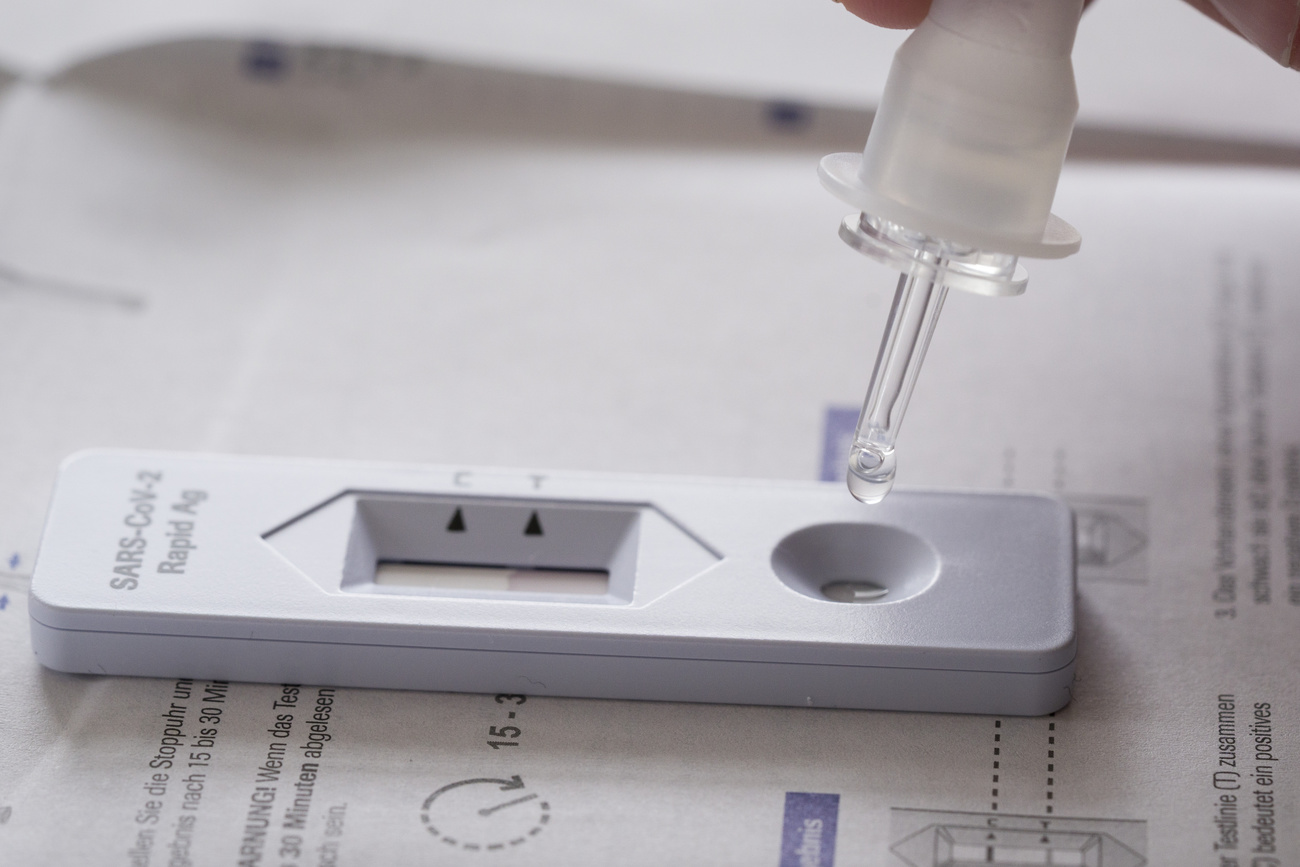
More
Coronavirus: the situation in Switzerland

In compliance with the JTI standards
More: SWI swissinfo.ch certified by the Journalism Trust Initiative

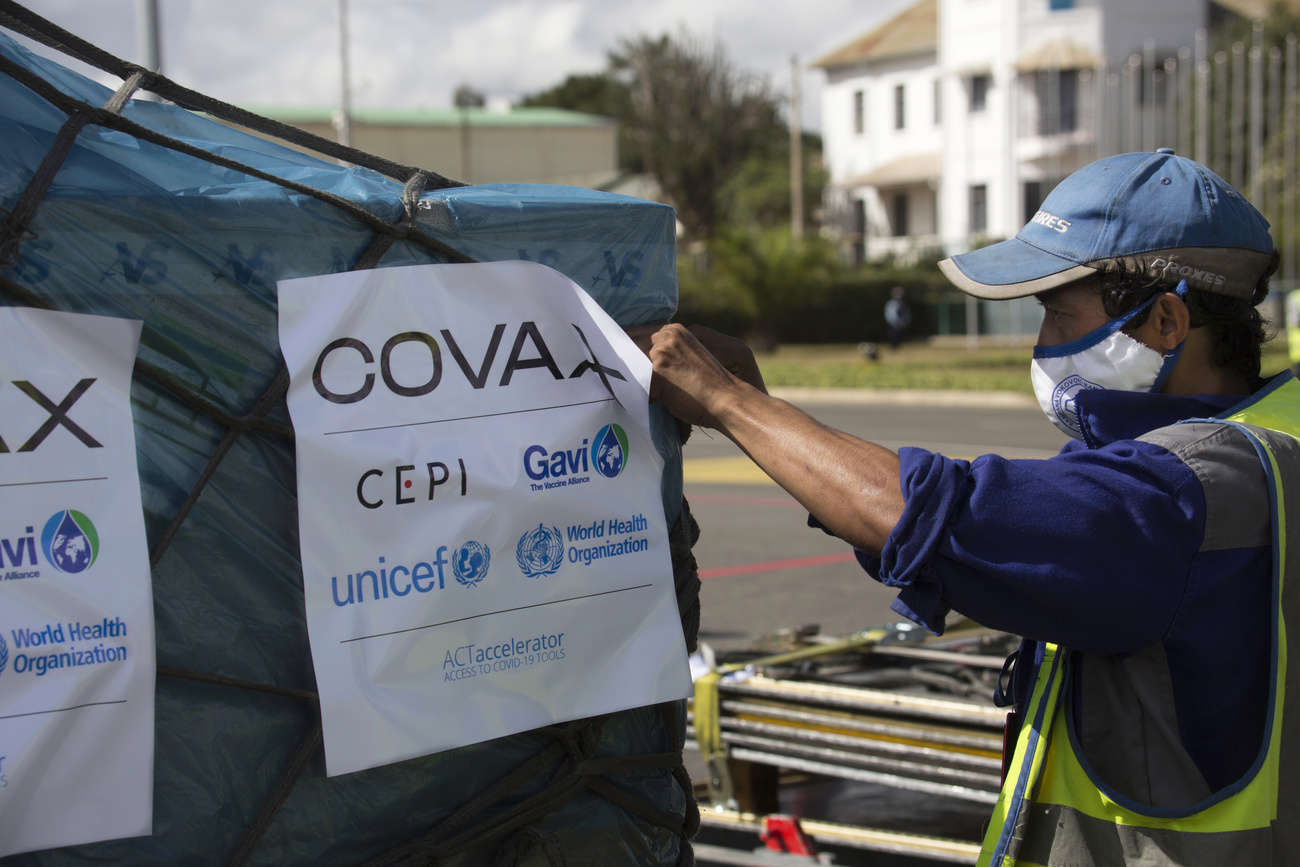
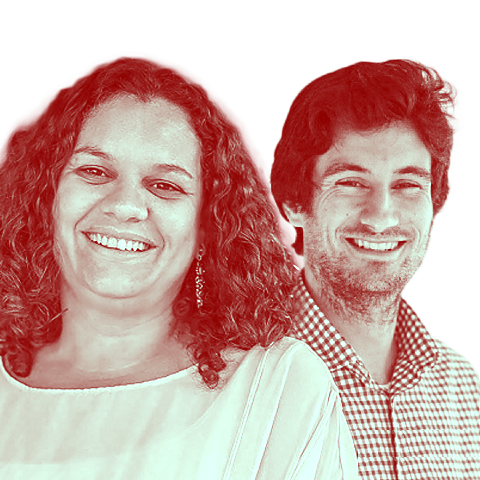
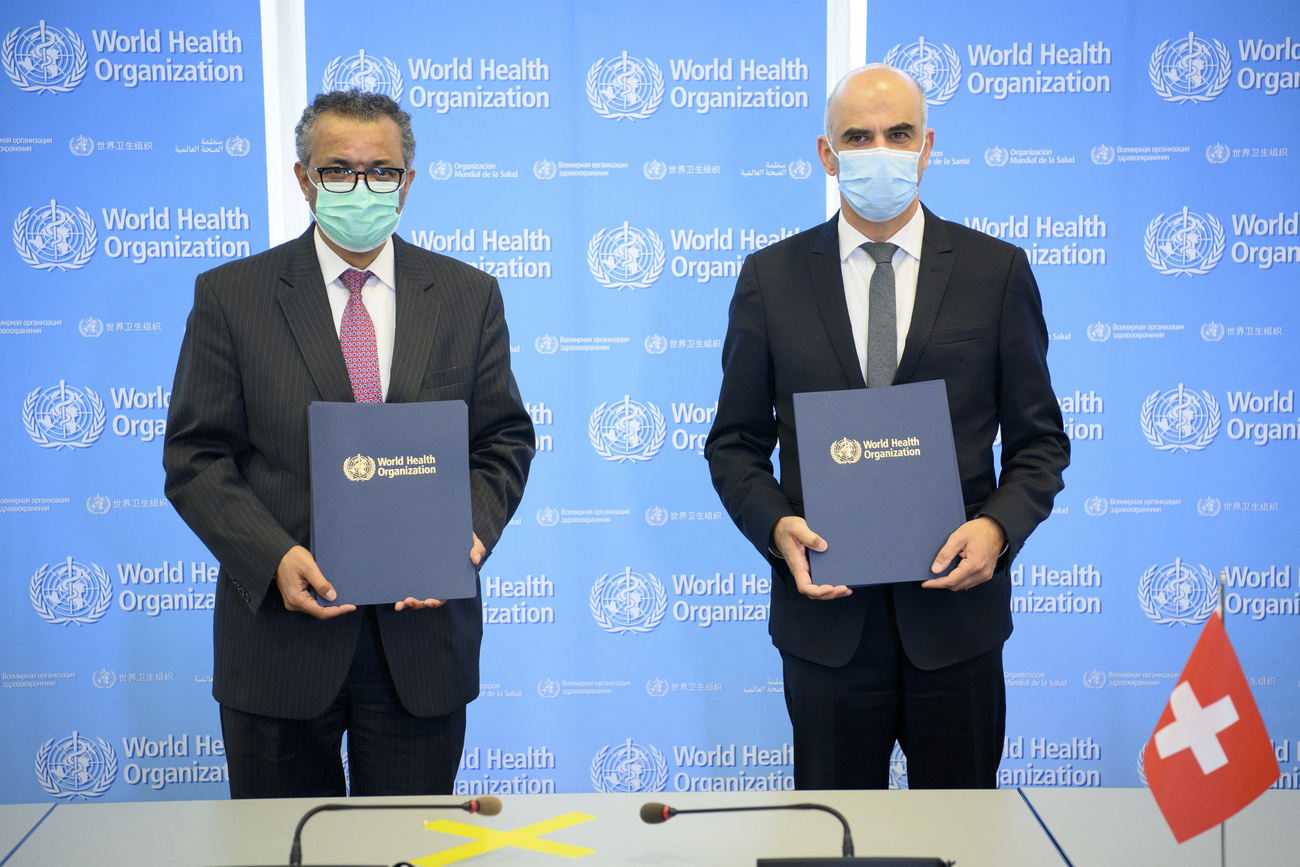
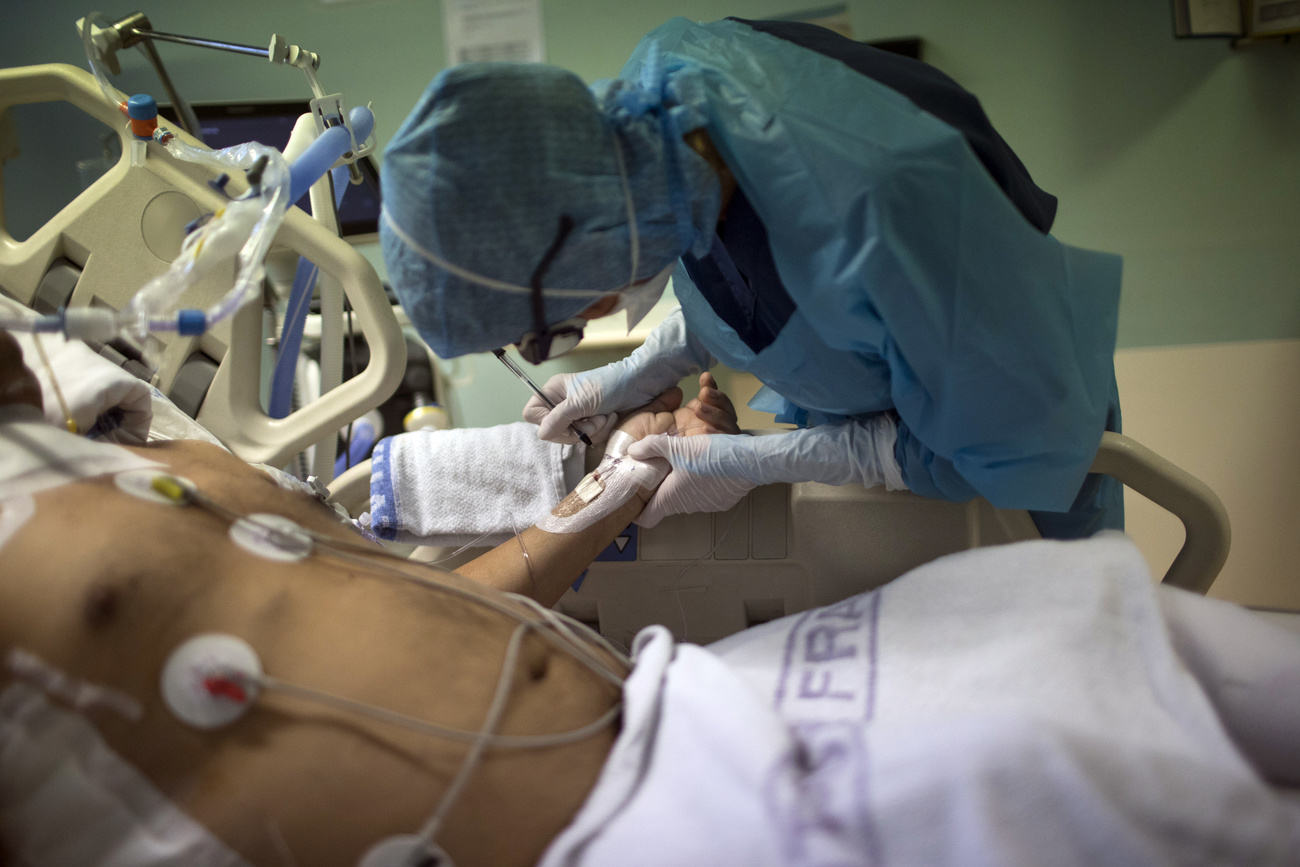
You can find an overview of ongoing debates with our journalists here. Please join us!
If you want to start a conversation about a topic raised in this article or want to report factual errors, email us at english@swissinfo.ch.